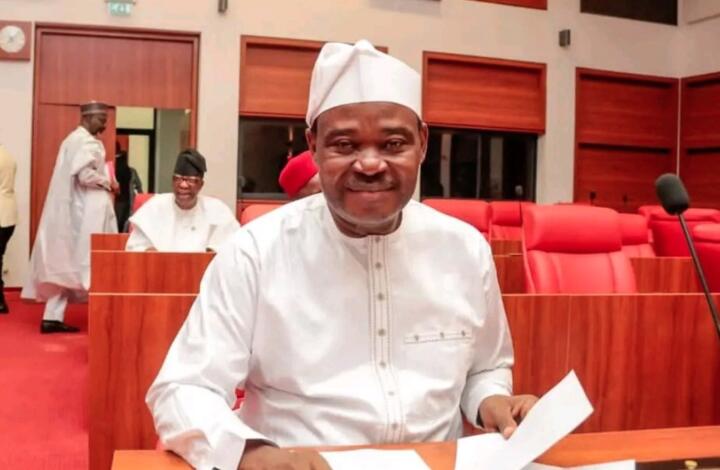Senator Jimoh Ibrahim reiterated his stance on the indispensability of federal government borrowing for the growth of the Nigerian economy. Addressing his previous advocacy for increased government borrowings, the representative of Ondo South in the Senate emphasized that no country develops its infrastructure without securing financial loans from foreign nations.
Appearing on Channel TV’s Politics Today, Ibrahim drew a parallel with Dubai, UAE, noting that despite its population of 12 million, the city-state has amassed over $168 billion in foreign debt. In contrast, Nigeria, with a population ten times greater, carries about $77 billion in public debt. According to the lawmaker, borrowing is essential for the Federal Government to undertake critical infrastructure projects, with the intention of repaying the loans in the long term.
“If you don’t borrow to run the economy, what do you want to do? Where do you want to get the funds to run the economy? Dubai, with a population of 12 million people, is owing 168 billion dollars and look at what they have used the money to do. They are paying back now at 10 billion dollars a month. Now, Nigeria, with a population of 250 million people, is owing 77 million dollars, now you have challenges here and there. So, the key issue here has to do with the fact that you must borrow to run the economy,” Ibrahim emphasized.

Senator Ibrahim also addressed the controversy surrounding the number of delegates led by President Bola Tinubu at the COP28 Climate Summit in Dubai, UAE. Disputing the reported figure of 1,411 delegates, the government clarified that 422 individuals were sponsored. Defending the delegation size, Ibrahim suggested that hosting the event in the future could be a possibility, justifying the need for a larger representation.
“Funding (over) 400 people to a conference like this is too small. You may want to host the conference sometime in the future,” he stated. The Senator emphasized the crucial role that the number of delegates plays in shaping knowledge dissemination at such events, particularly regarding Nigeria’s challenges with the repercussions of environmental pollution.
As of June 2023, Nigeria’s debt to Gross Domestic Product (GDP) ratio stands at 38.4%. The Debt Management Office (DMO) has expressed concern about the country’s debt service-to-revenue ratio, which is at an unsustainable 73.5% in 2023. With Nigeria’s total debt reaching N87.38 trillion ($113.42 billion), encompassing the combined domestic and external debts of the Federal Government, thirty-six states, and the Federal Capital Territory, the proposition of continued borrowing for economic obligations appears both controversial and ill-timed.
Support InfoStride News' Credible Journalism: Only credible journalism can guarantee a fair, accountable and transparent society, including democracy and government. It involves a lot of efforts and money. We need your support. Click here to Donate
